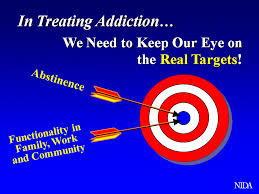Containing the challenges involved in Addiction Recovery
Containing the challenges involved in Addiction Recovery: Relapse Prevention

Containing the challenges involved in Addiction Recovery is very paramount in treatment of drug addiction
The consequences of substance abuse are real and life threatening. We cannot pretend that it is business as usual when the prevalence of drug addiction is ravaging and killing the economic fabric that we all work hard to improve every day. Have you ever imagine the economic and social losses that come with drug addiction? Each government today is formulating new legislations that bring even tougher penalties for the law offenders. It is a pity that these laws are only being made because of our failures to curb the situation. Is there anything you can do to help? There is actually a lot that you can do, and in fact if you are reading this article right now, you are already doing something. The information registered in this article is very rich with facts about containing the challenges involved in drug addiction recovery process. Therefore I want to encourage you to continue reading and not just reading but also invite your friends to the site of health information that delivers to greater heights. Doctor Dalal Akoury has been working round the clock to offer her contribution in the fight of this catastrophic problem in this point of time.
You may be wondering how she does this and how you can get to meeting her for a one on one discussion about some of those drug related problems that you may consider confidential. Well doctor Akoury is a medical doctor who has been in this line for over two decades helping people overcome their greatest fears of drug addictions. And while observing the great suffering of the societies, she made a very wise decision to establish a health facility where people from all walks of life can walk in for treatment about their various addiction conditions. The objective of this facility (AWAREmed Health and Wellness Resource Center) is to transform the lives of the suffering members of the societies by first creating an increased awareness about health and wellness. This she does by empowering everyone into finding their own inner healing power which everyone has is only that many have not known how to tap it for their own benefits.
The increase in awareness is all about health and wellness which when adopted will empower each individual to finding their own inner healing power. You remember when we started I stated that everyone can do something in helping solve the problem of addiction. That is not a fiction because when you discover your inner healing power, nothing will stand your way. This is what doctor Akoury desires you. Besides that it is also very important to note that doctor Akoury’s practice focuses on personalized medicine through healthy lifestyle choices that deal with primary prevention and underlying causes instead of patching up symptoms. This can only communicate total professionalism and high level of experience and working with such professionals is all that people who are looking for real solutions to their addiction problem can consult with. Therefore you can schedule for an appointment with doctor Dalal Akoury today for any concern you may be having in relation to drug addiction. In the meantime let us get back to the discussion of containing the challenges involved in addiction recovery.
Containing the challenges involved in Addiction Recovery: The after math of Addiction treatment
After successful treatment for substance abuse, addicts are faced with new challenges when reintroduced to the world as sober individuals. All addicts face temptations in recovery, and some may feel lost in the quest for sobriety. Drug relapse prevention is crucial in maintaining a sober lifestyle. There are many roads you can take to prevent relapse in recovery. Doctor Akoury says that getting sober and staying sober is the hardest part of recovery for most patients. Nonetheless staying sober can be made easier by taking certain measures which we are going to discuss shortly in this article. We mention earlier something about relapse prevention and actually drug rehabilitation is the foundation is the foundation of drug relapse prevention in addicts and very vital in the recovery process. As a recovering addict, you need to feel encouraged for the step you have made of acknowledging that you have a problem and that you want to seek for ways of fixing it. Many people are suffering from addiction and all the complications that come with it yet they are unable to take that step.
Containing the challenges involved in Addiction Recovery: A Healthy Mind and Clear Goals
Now that you know of the challenges involved in the recovery process, your actions towards addiction will and treatment will be very vital. Remember that the biggest challenge would be that of relapsing. The solution to this would be constant consultation with the experts like an addiction treatment counselor or other mental health professional to discuss your progress in sobriety. These meetings are a key part of your addiction relapse prevention regimen. Ongoing meetings with a professional strengthen an addict’s sobriety by reinforcing the skills learned while in rehabilitation.
Addiction counselors use a variety of methods to help addicts remain sober. When you or your loved one meets with a counselor, different types of therapies will be used, such as cognitive behavioral therapy. In this type of therapy, an addict will learn to cope with and avoid situations where drug use is likely to occur. An addiction treatment counselor may also use motivational incentives that encourage you or your loved one to remain sober. However, if drug relapse prevention measures are to be effective, they need to give addicts the strength to avoid drugs, not just the motivation to do so.
Besides that some addicts may require medications to remain sober. These medications suppress cravings that an addict may experience and help regulate brain functioning in patients who may experience imbalances. Such medications may include methadone, a synthetic narcotic used to suppress cravings in opiate addicts. Alongside medications meeting with a psychiatrist is also recommended as this will help you or your loved one manage recovery with medications if needed.
Subsequently, it’s very important to take care of your mind. An integral part of drug relapse prevention is keeping the mind healthy and focused. An engaged, healthy mind is less likely to be constantly thinking about using drugs. Staying occupied with positive things such as career, educational and personal goals are great ways to maintain sobriety. As you achieve these goals, you will gain a sense of pride and improve your self-esteem. As these things occur, you will be less tempted to use drugs.
Finally maintaining your stress levels also helps in drug relapse prevention. According to a study by the Social Ecology Laboratory it was established that that addicts who faced multiple negative life experiences after treatment had worse results than those who did not. Therefore it is important in times of negativity to remain positive. During such times, you may require more visits to counselors to help maintain your sobriety. This is normal and a very healthy decision to make. Do not stress over handling recovery alone because we are here to help you all the way says doctor Dalal Akoury MD and founder of AWAREmed Health and Wellness Resource Center.
Containing the challenges involved in Addiction Recovery: Relapse Prevention




